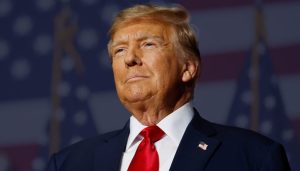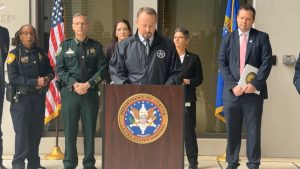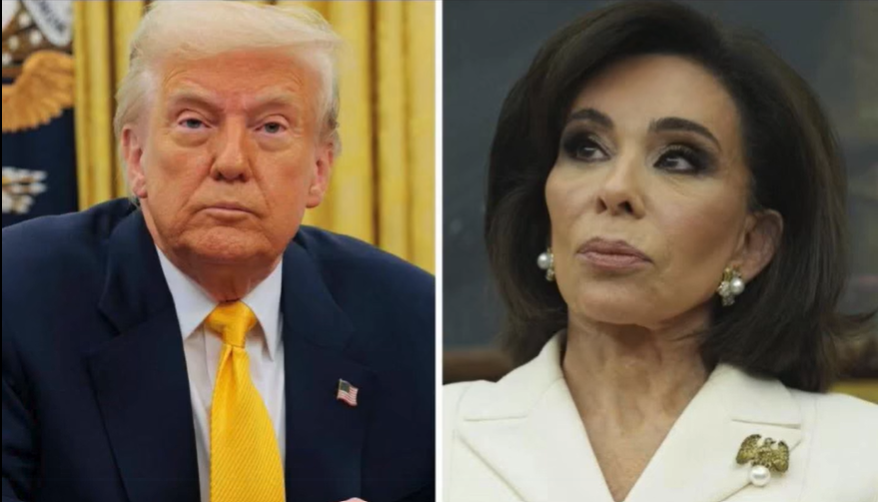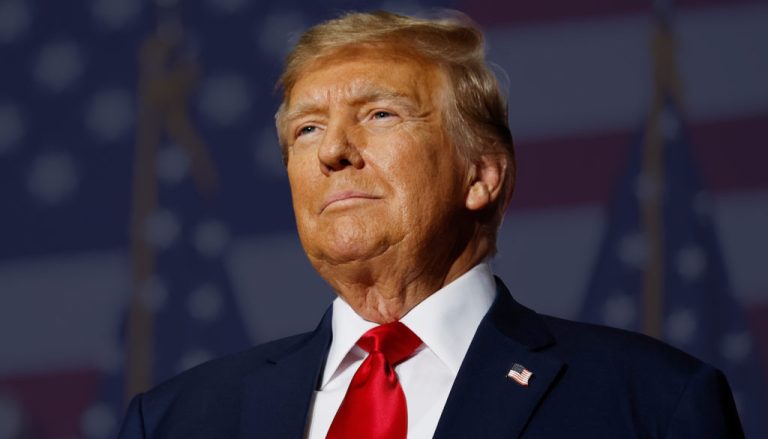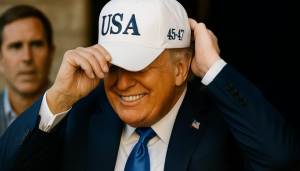Federal Authorities Announce Major Arrest Amid Heightened Presidential Security
Washington, D.C. — Federal authorities have announced a major arrest tied to credible threats against President Donald Trump, underscoring the intense security measures surrounding the presidency in today’s polarized political climate. The case has quickly gained national attention—not only for the severity of the alleged threats but also for the way the Justice Department revealed the news.
Jeanine Pirro Delivers DOJ’s Breaking News
In a highly unusual move, Jeanine Pirro, a former Fox News host and current U.S. Attorney for the District of Columbia, personally delivered the announcement via social media. The video post was direct, dramatic, and designed to grab attention.
“Hi everyone, it’s Judge Jeanine,” Pirro began, signaling that this wasn’t a typical DOJ press release. She confirmed that federal agents arrested an individual accused of making credible and escalating threats against the President, describing the situation as a serious and immediate security concern.
By leveraging Pirro’s high-profile name recognition, the DOJ sent a strong message: threats against federal officials will not be tolerated.
Who Was Arrested and Why It Matters
The suspect has been identified as Nathalie Rose Jones, a 50-year-old from Lafayette, Indiana. According to federal documents, Jones allegedly turned online rhetoric into real-world action by traveling across state lines to Washington, D.C. This cross-country move elevated the risk level, signaling potential premeditation rather than idle online chatter.
The Justice Department emphasized that Jones’s online threats became more explicit and specific over time, prompting immediate intervention by the Secret Service and federal investigators.
From Social Media Posts to Real-World Danger
Court records outline a disturbing timeline:
-
August 2: Secret Service agents began monitoring an Instagram account, “nath.jones,” after discovering posts calling for the removal of the President and labeling him a “terrorist.”
-
August 6–15: Jones allegedly escalated threats on Facebook, with posts that grew increasingly violent and referenced methods of harm.
-
August 15: Agents conducted a voluntary interview with Jones, who reportedly reaffirmed her statements, called Trump a “Nazi,” and admitted possessing a “bladed object” she intended to use.
-
August 16: Jones attended a protest near the White House—just one day after her interview—placing her in direct proximity to the President.
Federal authorities considered this combination of explicit threats and physical presence near the President as a critical red flag.
Motives Behind the Threats
Investigators report that Jones linked her threats to frustration over COVID-19 policies and vaccine mandates, claiming she wanted to “avenge all the lives lost during the pandemic.” Her alleged comments during interviews pointed to deep political and ideological anger, which authorities believe contributed to her willingness to escalate from rhetoric to action.
The Secret Service’s Role in Stopping the Threat
The U.S. Secret Service, tasked with protecting the President and other high-profile figures, played a central role in neutralizing the situation. Experts note that when individuals who make explicit threats then travel toward their target, they are considered among the highest-risk cases.
After interviewing Jones a second time following her participation in the White House protest, federal officials decided the threat warranted immediate arrest. Prosecutors are now pursuing charges related to making threats against the President—a serious federal offense.
Why This Case Matters Now
This arrest comes at a time of intensified security measures for President Trump, as federal agencies report a sharp rise in threats amid an already divided political landscape. The Justice Department has also launched new initiatives aimed at tracking and neutralizing politically motivated violence before it escalates.
Jeanine Pirro’s involvement in the announcement was strategic, signaling transparency and urgency. It also reflects a trend of high-profile DOJ figures using social media to communicate directly with the public, bypassing traditional media channels.
What Happens Next?
Legal experts say the case against Nathalie Rose Jones could result in significant prison time if prosecutors prove intent and capability to act on threats. Federal law allows severe penalties for those who threaten the President, especially when combined with actions like interstate travel and weapon possession.
The Justice Department has not released further details about Jones’s legal representation or possible plea negotiations. A court date is expected to be announced soon.
The Bigger Picture
The arrest highlights a growing challenge for law enforcement in the digital age: how to distinguish between protected political speech and credible threats that pose real-world danger. Social media has amplified both the speed and scale at which threats can spread, requiring agencies like the Secret Service to adapt with advanced monitoring and rapid response strategies.
As political tensions remain high and security risks continue to evolve, this case serves as a stark reminder that words matter—and when they cross the line into actionable threats, consequences follow swiftly.
https://www.youtube.com/watch?v=QF3qqLBsUQg

James Jenkins is a celebrated Pulitzer Prize-winning author whose work has reshaped the way readers think about social justice and human rights in America. Raised in Atlanta, Georgia, James grew up in a community that instilled in him both resilience and a strong sense of responsibility toward others. After studying political science and creative writing at Howard University, he worked as a journalist covering civil rights issues before dedicating himself fully to fiction. His novels are known for their sharp, empathetic portraits of marginalized communities and for weaving personal stories with broader political realities. Jenkins’s breakout novel, Shadows of Freedom, won national acclaim for its unflinching look at systemic inequality, while his more recent works explore themes of identity, resilience, and the fight for dignity in the face of oppression. Beyond his novels, James is an active public speaker, lecturing at universities and participating in nonprofit initiatives that support literacy and community empowerment. He believes that storytelling is a way to preserve history and inspire change. When not writing, James enjoys jazz music, mentoring young writers, and traveling with his family to explore cultures and stories around the world.


